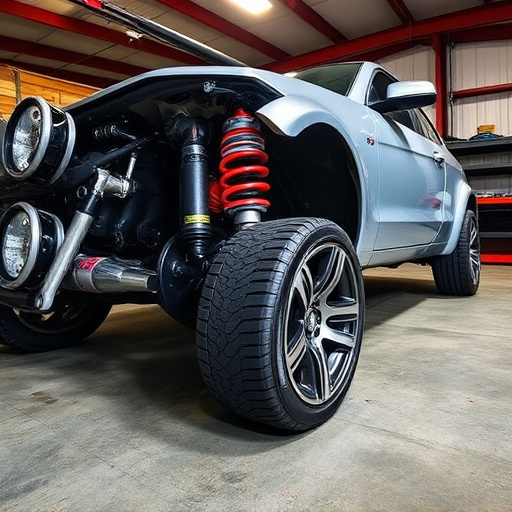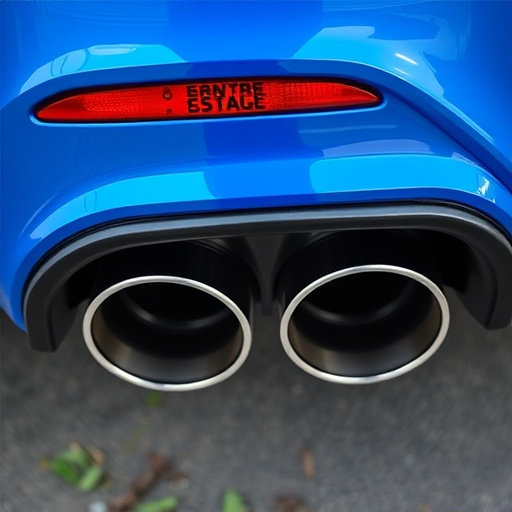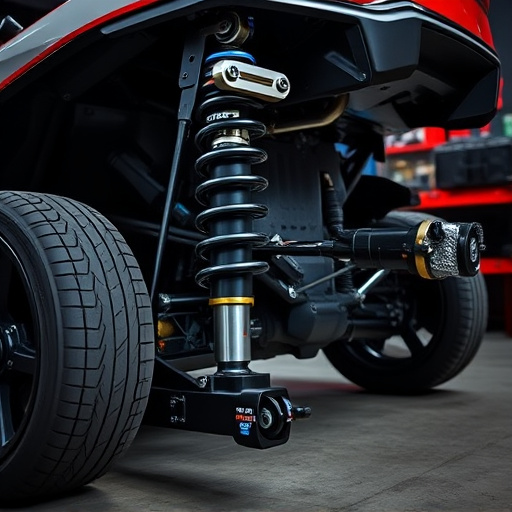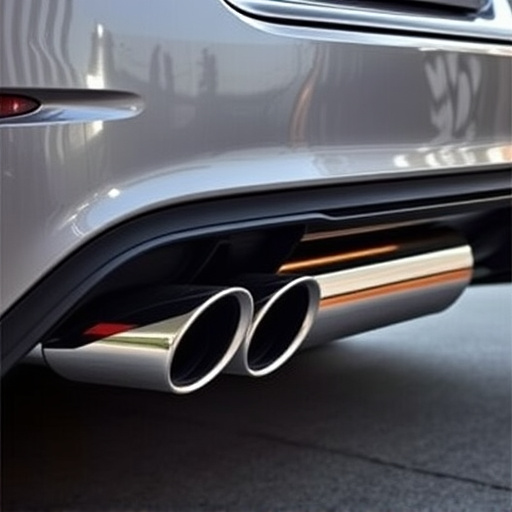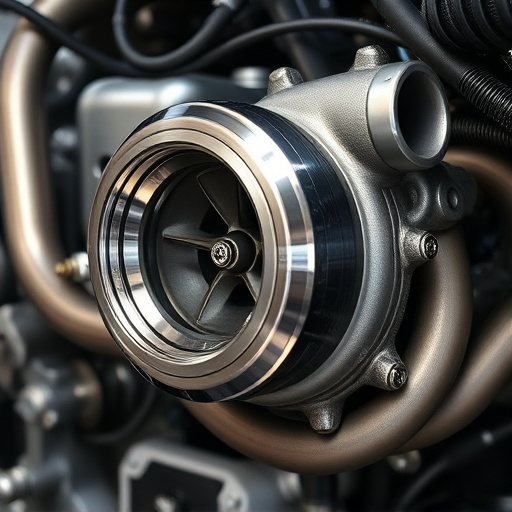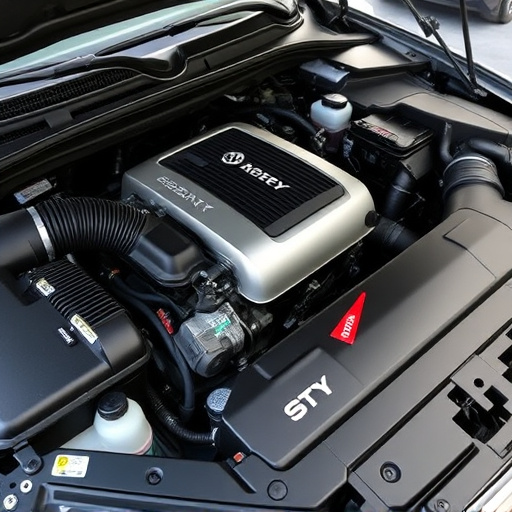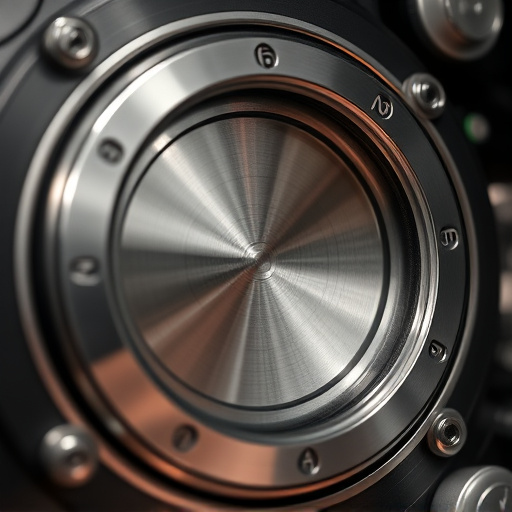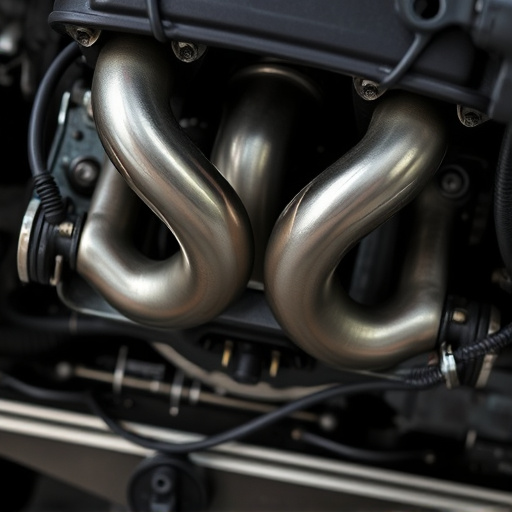The brake master cylinder (BMC) is a critical component in a vehicle's braking system, generating hydraulic pressure for effective stopping. Regular maintenance, including leak checks and fluid inspections, is essential for optimal BMC function and longevity, especially in high-performance vehicles. Early signs of leaks, like unusual noises or seepage, should be addressed promptly to prevent brake failure and ensure safe driving.
Recognizing leaks in your vehicle’s brake master cylinder early is crucial for safety and peace of mind. This essential component plays a vital role in your car’s braking system, controlling the flow of brake fluid to enable effective stopping power. By understanding the signs of potential leaks and implementing preventive measures, you can avoid costly repairs. This guide will walk you through the process, empowering you to maintain optimal brake performance.
- Understanding the Brake Master Cylinder: Its Role and Components
- Common Signs of Early Leaks in the Brake Master Cylinder
- Prevention and Maintenance Tips to Avoid Brake Master Cylinder Leaks
Understanding the Brake Master Cylinder: Its Role and Components

The brake master cylinder (BMC) is a critical component in a vehicle’s braking system, playing a pivotal role in ensuring safe and effective stopping power. It acts as the source of hydraulic pressure, transmitting the force applied on the brakes from the driver to the wheels. Inside the BMC, you’ll find a master cylinder piston that moves when you press the brake pedal. This motion activates corresponding slave cylinders located near each wheel, applying friction pads against the rotors for slow-down or stop.
Comprised of various parts, such as the reservoir, piston, and valves, the BMC maintains the necessary hydraulic fluid pressure. Any disruption in this mechanism can lead to poor braking performance, making it crucial to recognize potential leaks early on. Regular maintenance, including checking for leaks, inspecting fluids, and replacing worn-out components, is essential for optimal brake function. Moreover, upgrading to performance brakes or installing a cold air intake system might influence BMC health, as these modifications enhance overall vehicle performance. Similarly, ensuring regular servicing, especially with a cat back exhaust system, can contribute to prolonged service life of this critical component.
Common Signs of Early Leaks in the Brake Master Cylinder

The brake master cylinder (BMC) is a vital component of your vehicle’s braking system. Early signs of leaks in this critical part can indicate potential issues before they turn into costly repairs. Some common indicators include unusual noises during braking, such as hissing or banging sounds, which may suggest air entering the system. Another visible sign is oil or fluid seepage around the BMC, especially at the caliper pins or push rods. Over time, a steady loss of brake fluid can also be an early leak indicator.
If you notice your vehicle pulling to one side when braking, it could point towards a problem with the suspension components interacting with the BMC. For those driving high performance cars equipped with powerful performance brakes and high-performance parts, regular checks for leaks are even more crucial. Early detection of these leaks can help prevent brake failure, ensuring safe and controlled stops whenever you hit the pedal.
Prevention and Maintenance Tips to Avoid Brake Master Cylinder Leaks

Regular maintenance and early detection are key to preventing brake master cylinder leaks. One effective strategy is to regularly inspect all components for signs of wear, corrosion, or damage. This includes checking the condition of the brake pads, which can wear down over time, exposing metal on the rotors and potentially leading to leak points. Additionally, ensure that all connections and seals are secure and in good condition.
Another tip involves maintaining proper fluid levels and ensuring there are no air leaks in the system, especially around the brake master cylinder itself. Avoiding extreme temperature changes can also help prevent cracks or damage to the cylinder. Upgrading to high-performance parts, such as cold air intakes, while not directly related to leak prevention, can contribute to overall vehicle health by enhancing performance and reducing stress on various components, including the brake system.
Recognizing leaks in your vehicle’s brake master cylinder early is crucial for maintaining safe and effective braking. By understanding the components and signs of potential issues, you can take proactive measures through regular maintenance. Preventing leaks not only saves costs but also ensures the reliability and performance of your brakes, giving you peace of mind while driving.

